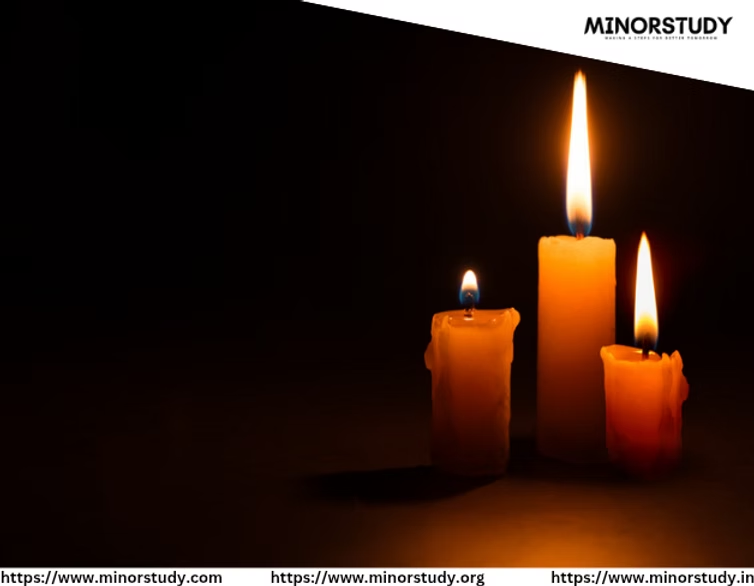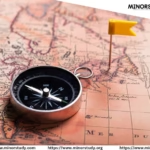🕯️ Introduction: Why International Holocaust Remembrance Day Matters
International Holocaust Remembrance Day: Each year, on January 27, the world unites to observe International Holocaust Remembrance Day—a day that honors the 6 million Jews and millions of other innocent victims killed during the Holocaust under Nazi Germany.
- 🕯️ Introduction: Why International Holocaust Remembrance Day Matters
- 📜 History of International Holocaust Remembrance Day
- 📆 Timeline of the Holocaust and Remembrance
- 🔍 Key Facts About the Holocaust and Remembrance Day
- 📌 Importance and Significance of Holocaust Remembrance
- 🙏 Observance Around the World
- 🌍 How It Impacts Our Daily Lives
- 🎯 Key Takeaways and Important Points
- 🤔 Frequently Asked Questions (FAQs)
- ✨ Wishing and Messages for Holocaust Remembrance Day
- 🧭 Conclusion: Why It Must Never Be Forgotten
- 📣 Final Words: Your Role in the Memory
This day is not just about mourning the past. It is a moment to remember, reflect, and act. It reminds humanity of the atrocity of genocide, the importance of human rights, and the urgency to fight antisemitism, racism, and hatred in all forms.
📜 History of International Holocaust Remembrance Day
🔹 Origins
The United Nations General Assembly officially designated January 27 as International Holocaust Remembrance Day in 2005, through Resolution 60/7. This date was chosen because it marks the liberation of Auschwitz-Birkenau, the largest Nazi concentration and extermination camp, by Soviet troops in 1945.
🔹 Before the UN Declaration
Even before the UN formalized it, Holocaust remembrance was already being observed in several countries. Israel, for instance, has Yom HaShoah, its own day of Holocaust remembrance in the Hebrew month of Nisan.
📆 Timeline of the Holocaust and Remembrance
| Year | Event |
|---|---|
| 1933 | Adolf Hitler becomes Chancellor of Germany. Nazis begin targeting Jews. |
| 1935 | Nuremberg Laws strip Jews of citizenship. |
| 1939 | WWII begins. Ghettos are created for Jews. |
| 1941 | Mass deportations and killings start; Einsatzgruppen (mobile killing units) active. |
| 1942 | Wannsee Conference lays groundwork for the “Final Solution.” |
| 1945 | Auschwitz and other camps are liberated. |
| 2005 | UN declares January 27 as International Holocaust Remembrance Day. |
🔍 Key Facts About the Holocaust and Remembrance Day
6 million Jews were murdered during the Holocaust.
Another 5 million non-Jews were also killed—including Romani people, the disabled, LGBTQ+ individuals, and political opponents.
Auschwitz-Birkenau was the largest extermination camp; over 1.1 million people were murdered there.
Anne Frank’s diary remains one of the most powerful personal records of the Holocaust.
The UN Resolution 60/7 not only established the day but also rejects Holocaust denial.
Many countries host memorial services, educational events, and moments of silence.
Survivors often speak to younger generations to keep the memory alive.
📌 Importance and Significance of Holocaust Remembrance
🧠 For Awareness
Most importantly, this day serves to educate people—especially the younger generation—about the horrors of the Holocaust so that such atrocities are never repeated.
⚖️ For Justice
It is also a moment to reflect on accountability and justice, to honor the resilience of survivors, and to remember the inhumanity that can arise from unchecked hate.
💔 For Empathy
Learning about the Holocaust teaches empathy and compassion, helping us see the pain that discrimination and prejudice can inflict upon individuals and entire communities.
🌎 For the World
It reminds governments and societies of their role in upholding human rights, preventing genocide, and fighting antisemitism and racism globally.
🙏 Observance Around the World
Here’s how the day is commemorated worldwide:
United Nations Headquarters holds special ceremonies, often with survivor testimonies.
Schools and universities conduct seminars and film screenings.
Museums like Yad Vashem (Israel) and the United States Holocaust Memorial Museum (Washington, D.C.) host exhibitions and remembrance events.
Candles are lit, and moments of silence are observed.
Social media sees widespread sharing of stories, survivor interviews, and education campaigns using hashtags like #WeRemember and #HolocaustRemembranceDay.
🌍 How It Impacts Our Daily Lives
Even though the Holocaust happened nearly 80 years ago, its lessons still affect our daily lives:
📚 In Education
Holocaust studies are integrated into many school curriculums to promote tolerance, critical thinking, and human values.
🧩 In Society
Understanding the Holocaust helps people spot signs of racism, xenophobia, and extremism, empowering them to speak out.
💬 In Conversations
Discussing Holocaust stories at dinner tables, schools, and even workplaces fosters a culture of remembrance and vigilance.
🕊️ In Peacebuilding
Many peace initiatives and interfaith dialogues reference the Holocaust to emphasize the importance of reconciliation and mutual respect.
🎯 Key Takeaways and Important Points
Never Forget: The Holocaust was a unique, horrifying chapter in human history. Forgetting it is dangerous.
Stay Vigilant: Prejudice and hate often begin subtly—through jokes, exclusion, or propaganda.
Education is Protection: Awareness through education is our best tool to prevent future genocides.
Human Rights are Fragile: We must work actively to protect them.
Survivor Stories Matter: Personal testimonies are powerful and must be preserved.
🤔 Frequently Asked Questions (FAQs)
Q1. Why is January 27 chosen as International Holocaust Remembrance Day?
A: It marks the day the Auschwitz-Birkenau concentration camp was liberated in 1945.
Q2. Who observes this day?
A: It’s observed globally, especially by UN member states, educational institutions, and human rights organizations.
Q3. How is this different from Israel’s Holocaust Memorial Day?
A: Israel observes Yom HaShoah, which falls in April or May. International Holocaust Remembrance Day is a UN observance on January 27.
Q4. What can individuals do on this day?
A: Attend memorials, read survivor stories, watch documentaries, educate others, and speak out against hate.
Q5. What’s the theme for recent Holocaust Remembrance Days?
A: The UN often sets yearly themes. For instance, themes like “Home and Belonging” (2023) reflect the lives of survivors after liberation.
✨ Wishing and Messages for Holocaust Remembrance Day
While it’s not a day of celebration, wishing respectfully with empathy and compassion is important. Some thoughtful messages:
🕯️ “On this day of remembrance, may we honor every life lost and every soul who survived with strength and dignity.”
📘 “Let us remember the past to protect the future.”
🤝 “Together, we must ensure that never again means never again—for anyone, anywhere.”
🧭 Conclusion: Why It Must Never Be Forgotten
The Holocaust was not just a Jewish tragedy—it was a human tragedy. Remembering it is not optional, it’s necessary. As time passes and survivors age, it becomes even more crucial to carry forward their stories, their pain, and their resilience.
International Holocaust Remembrance Day is a reminder that when humanity forgets compassion, it falls into cruelty. By remembering, we resist hate, stand for justice, and build a world where dignity triumphs over discrimination.
📣 Final Words: Your Role in the Memory
You don’t need to be a historian to make a difference. Simply:
Read a survivor’s story
Talk about it with someone younger
Challenge hate speech
Light a candle
Never forget








